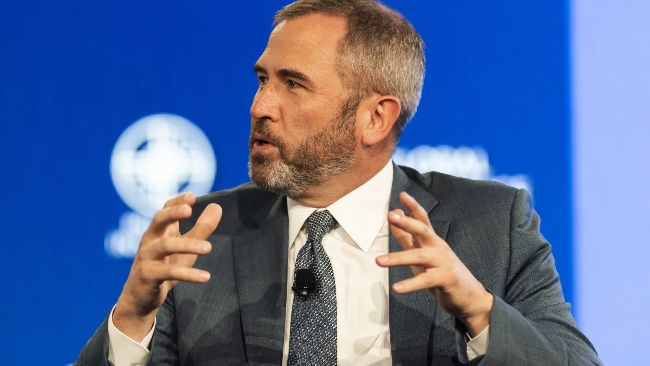Ripple Labs CEO Brad Garlinghouse has accused Wall Street bank lobbyists of trying to resist his company and other crypto companies from entering the banking sector and the Federal Reserve’s so-called master accounts.
Garlinghouse said at DC FinTech Week on Wednesday that the crypto sector “should be held to the same standards” as traditional financial businesses when it comes to money laundering protection and other illicit financial safeguards, echoing traditional banking officials. But as a result, the industry “needs to have the same access to infrastructure such as the Fed’s master account.”
“You can’t say one thing and fight the other,” Garlinghouse said of the requirement that cryptocurrencies adhere to similar regulatory standards. “That’s hypocritical and I think we should all call them out on that for being anti-competitive.”
A master Fed account would allow cryptocurrency companies to be more seamlessly integrated into the U.S. financial system and have direct access to the central bank’s systems, a core benefit of traditional banking. But they face difficulties getting the Fed to grant such access, or even explaining how it can be obtained.
Ripple recently applied for a master account through its subsidiary Standard Custody and Trust, a New York-based trust, at the same time that the prominent cryptocurrency company sought federal banking charter from the Office of the Comptroller of the Currency in July.
Garlinghouse’s company, which has recently moved into the stablecoin issuer space, said banks are finally starting to take stablecoin issuers more seriously after years of difficulties when financial firms were reluctant to get involved due to resistance from U.S. regulators.
“I had a meeting yesterday in New York City where banks that three years ago would not have talked to us are now coming on board and saying how can we partner on this issue?” He said he acknowledged that these conversations involved Ripple’s stablecoin effort, known as RLUSD.
He said granting master accounts to crypto companies such as Ripple and Circle will help improve stability, regulatory oversight and reduce risk.
“It’s a little disappointing to see some traditional banks start lobbying against something like that,” Garlinghouse said.


